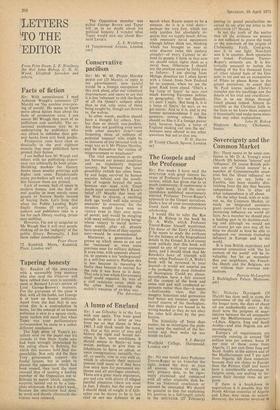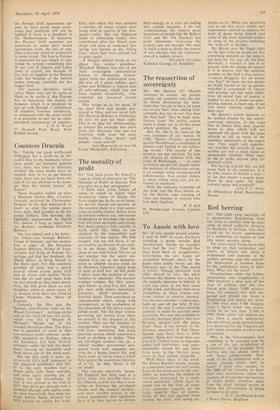Sir: Nicholas Davenport (26 March) has done well to stress
the seriousness of the oil crisis. For the longer term, the days of cheap oil are undoubtedly over: in the short term the progress of nego- tiations between the oil companies and the Mediterranean exporters —Libya, Algeria, Iraq and Saudi Arabia—and also Nigeria are not encouraging.
Europe's oil requirements are currently running at around 700 million tons per annum. Some 28 per cent of these come from Algeria, 11 per cent from Iraq and Saudi Arabia at the eastern end of the Mediterranean and 7 per cent from Nigeria. All these countries, because they are closer to Europe than the Persian Gulf and hence have a considerable advantage in freights costs, are seeking to im- prove their income from oil ex- ports. If there is a breakdown in negotiations it is possible that the North African countries of Algeria and Libya may cease to export. However, the countries involved in
the Persian Gulf agreements ap- pear to have given some assur- ances that sanctions will not be applied if there is a deadlock in the Mediterranean. If therefore the Persian Gulf countries are concerned to make their recent agreements work, the loss of sup- plies to Europe could be minimised to some extent. The loss to Europe if continued for any length of time would be serious—something like 20 per cent if Algeria and Libya cease to export, not because of any lack of supplies in the Persian Gulf, but because of the limited tanker tonnage available for the longer haul.
The picture, therefore, while rather bleak may not be quite as black as he paints it. But Europe has to determine the degree of nuisance which it is prepared to put up with through a curtailment of supplies, however temporary, as compared with the price which it is prepared to pay for an unin- terrupted continuance of supplies. C. H. G. Wood 31 Dartncll Park Road, West Byfleet, Surrey











































 Previous page
Previous page